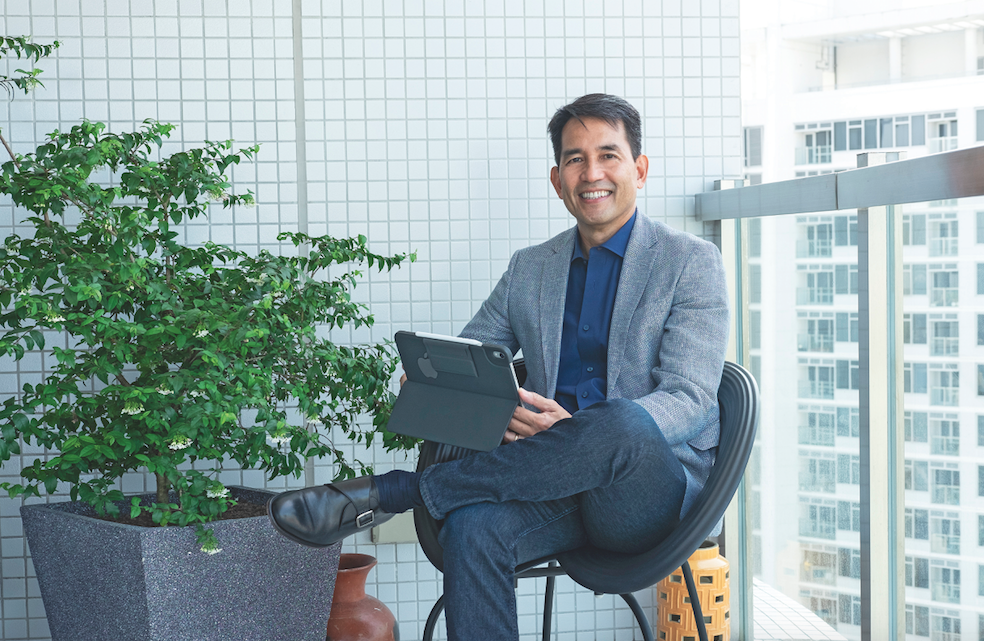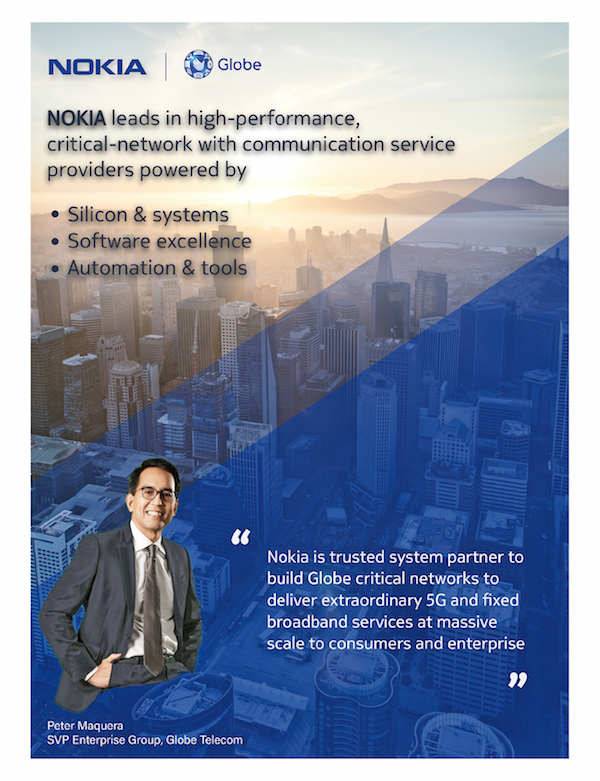Peter Maquera admits that his appointment to lead Globe Telecom’s Enterprise Group four years ago was something of a gamble for the Philippines’ largest mobile network operator. A wildly successful telecommunications giant had put someone with no experience of telecoms in charge of its enterprise customers at a time when the industry was experiencing headwinds driven by the unrelenting pace of evolving technologies.

“I’d worked for an investment firm for eight years, so I guess I was a bit of an experiment,” Peter laughs. “But, you know, in many ways it’s eminently logical because I was a completely blank canvas with no preconceptions. I guess someone said, ‘Hey, let’s get the non-telecoms guy in and see what he thinks.’ If you’re going to disrupt yourselves, you may as well do it while you’re strong.”
Globe was certainly strong. In addition to its unrivalled mobile business, it was also one of the biggest players for fixed-line services. While rolling out 5G, it had just launched online fashion portal Globe Lifestyle and two entertainment divisions – Globe Studios for film and television production, and live music destination Globe Live.
However, it still had challenges when it came to figuring out future priorities. “A lot of telcos have a problem because they’re legacy businesses,” Peter points out. “If they want to grow, they need to transform beyond telco, so bringing in an outsider actually made some sense.”
Peter could see that the problem to solve was data commoditising. Telco itself had become a commodity and overcoming price declines with volume wasn’t a long-term answer. “We had to look for the secular trends in business and how technologies were going to drive them,” he recalls.
A different defence
“Yesterday’s architecture is like a castle and moat,” Peter says. “You’d have your servers on premise and protect them with a firewall. But now, you have all these cloud-native apps, and the castle and moat are virtual. So when the pandemic hit and everyone was working from home, it totally changed the threat landscape. If, all of a sudden, you have 10,000 employees outside the safety of the office cybersecurity, that’s a totally different exposure that needs important new technologies in place to protect customers.”
“We have an awesome brand and awesome relationships, and I wanted to use that to position ourselves as the most awesome channel partner for transformative technologies such as cloud, cybersecurity, AI, IoT and edge computing.
“Meanwhile, we’re also becoming this fantastic incubator of new business tech. That would be a way to grow too. Now, we have 30% more products in our portfolio than we did a few years ago. We’re not trying to be like another systems integrator; we’re just looking for spaces where we have a right to win by leveraging the entire Globe ecosystem.”
To succeed in that regard meant transforming the workforce from selling devices and connectivity to offering wider, more holistic solutions. And with clients more savvy than ever about the market, Peter didn’t want all the sales pitches to end up being negotiations around price.
“The companies we’re talking to are smart; they do their homework and know what we’re going to say to them. So what makes a difference is providing some insight,” he says. “It’s about looking at what the enablers are going to be for them to thrive in a digital world. Once we know that, we essentially journey with them through that process.”

The journey for Globe’s teams has seen them gain more than 600 certifications in cloud applications and 900 in cybersecurity. And they’ve clearly loved the experience as the company was named the best workplace in the continent at the Asia Corporate Excellence & Sustainability Awards for three consecutive years.
“Even in the worst of times when, say, an undersea cable in the middle of the Pacific is cut and it’s, ‘Oh my god, this is the worst thing!’ our people are there 24/7, doing backflips for the customers, facing up to problems and being transparent about what’s happening,” Peter reveals.
“If a circuit goes down, they’re there, sorting it out so the customer knows that we’ll do anything for them, that we’re obsessed.”
Proudly supported by:



